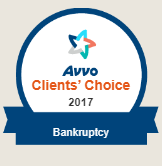Sometimes, hard work and determination are not enough to keep creditors at bay. Many responsible people due to uncontrollable issues wind up losing their ability to stay current on their financial obligations and pay off/down their debt. Those who find themselves contemplating bankruptcy often hesitate to start the process due to the belief that they will lose everything.
Contrary to misconception, bankruptcy provides the opportunity for a fresh financial start. Here what you should know about bankruptcy and assets.
Bankruptcy does not mean destitute
Bankruptcy law mandates that some assets may qualify as exemptions. Exempt assets are not subject to immediate forfeiture. Under Chapter 13, you may keep most of your assets, including the house and cars as long as you adhere to the repayment plan that the trustee creates. The repayment plan gives you a three-to-five-year window to repay restructured debt amounts.
Chapter 7 bankruptcy, however, works a bit differently. In order to keep assets, you must identify them as exemptions. By claiming them as exemptions, you can keep them from being sold to satisfy delinquent debts.
Assets that qualify include:
- Cars
- Insurance policies
- Real estate
- Personal possessions, such as jewelry, clothes, furniture, etc.
Surprisingly, having a reduction in income is not the sole criteria for bankruptcy. To take advantage of Chapter 7, the average of your income for the six months prior to the date on your bankruptcy application must fall below a certain level or pass the means test. Some types of income do not affect the means test.
If your income is above the means amount but still not sufficient enough for you to get caught up on your delinquent debt, Chapter 13 may provide greater flexibility. You gain the opportunity to improve your financial situation without the stress of repossession or foreclosure looming.



